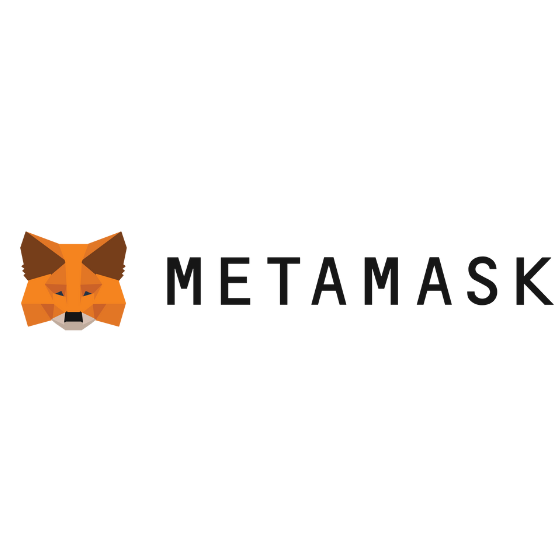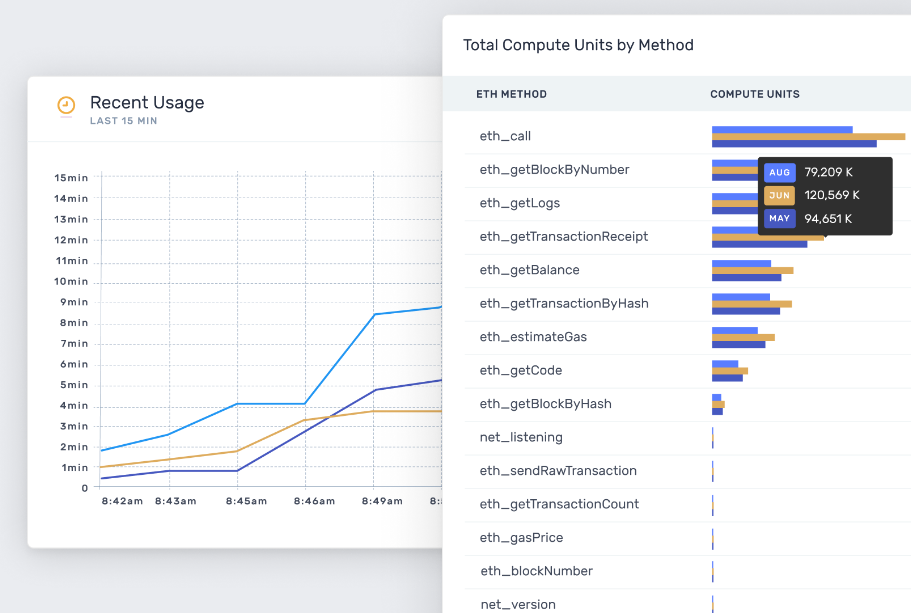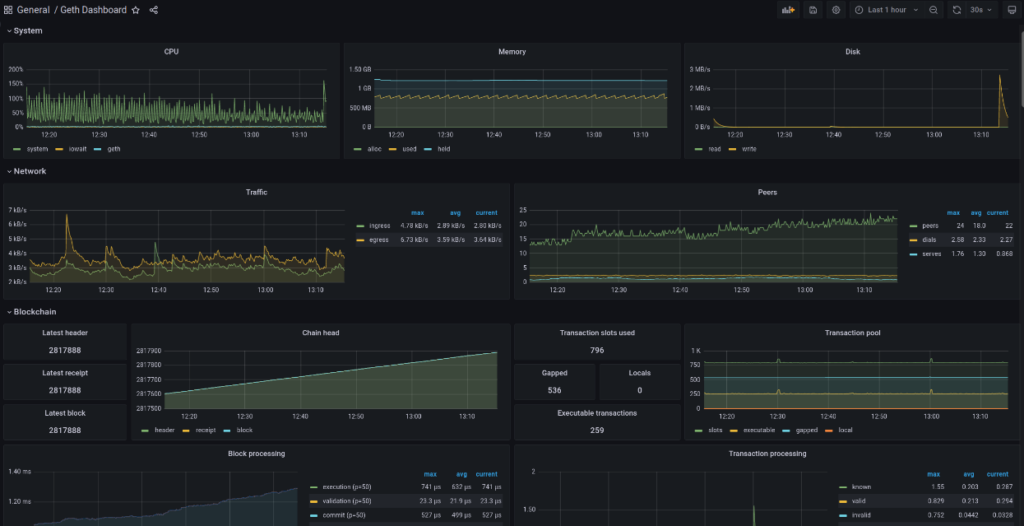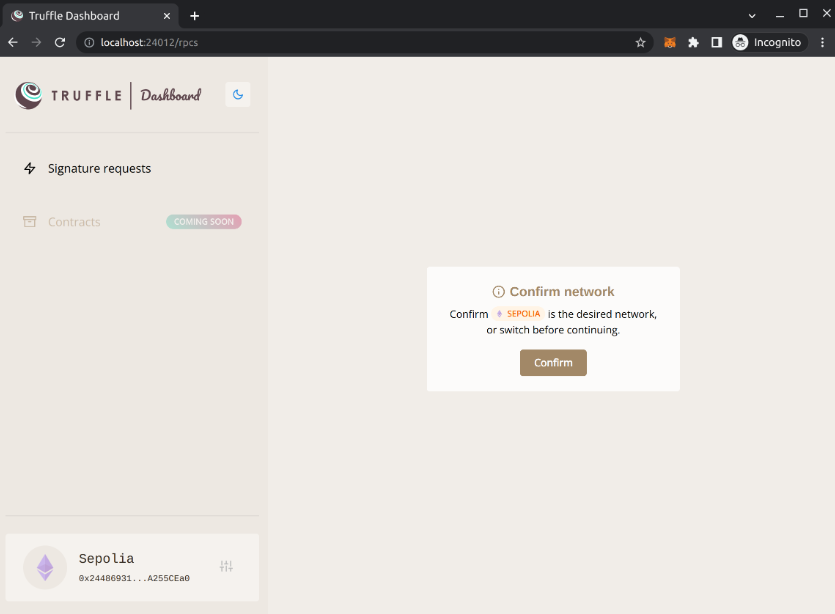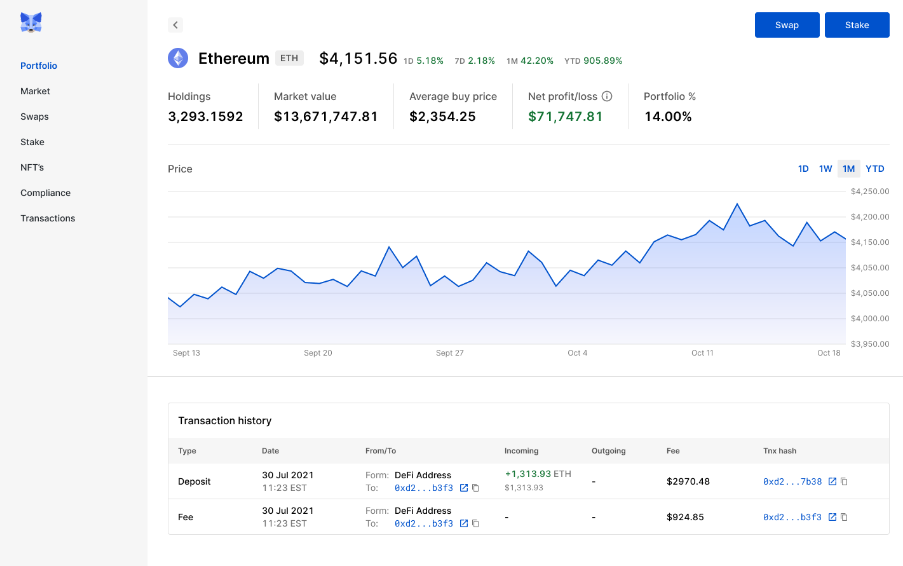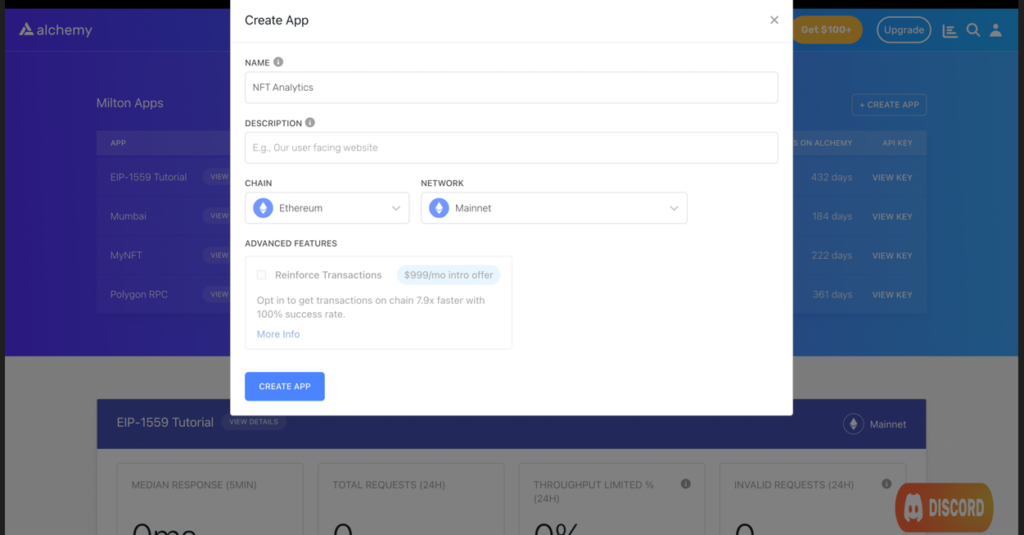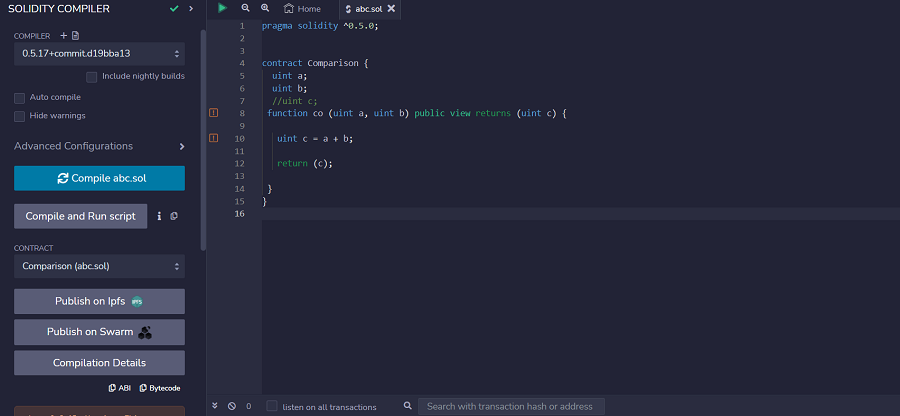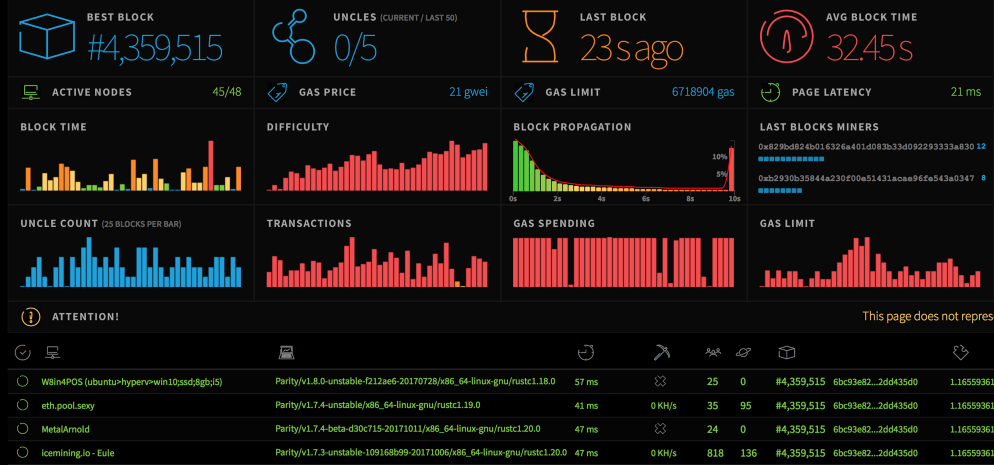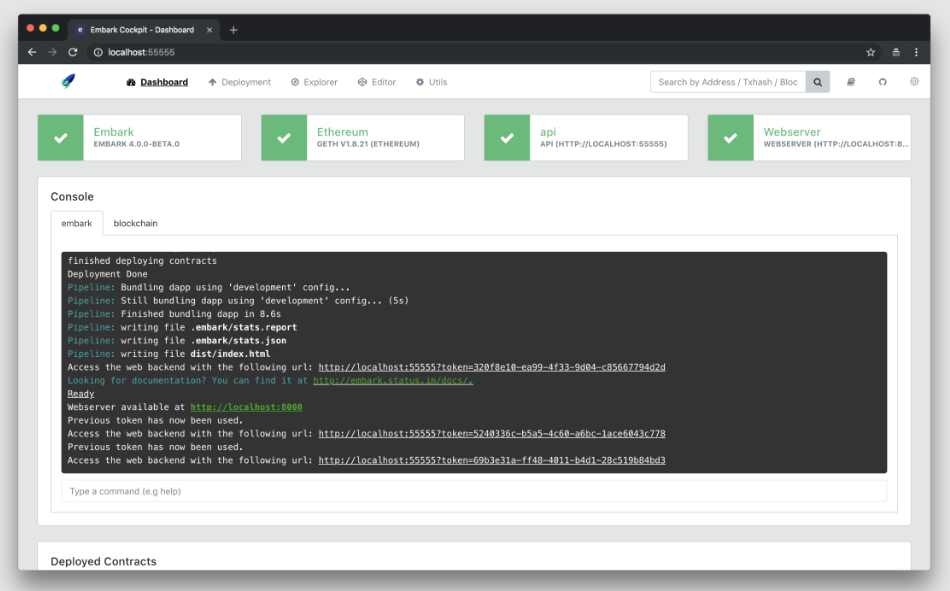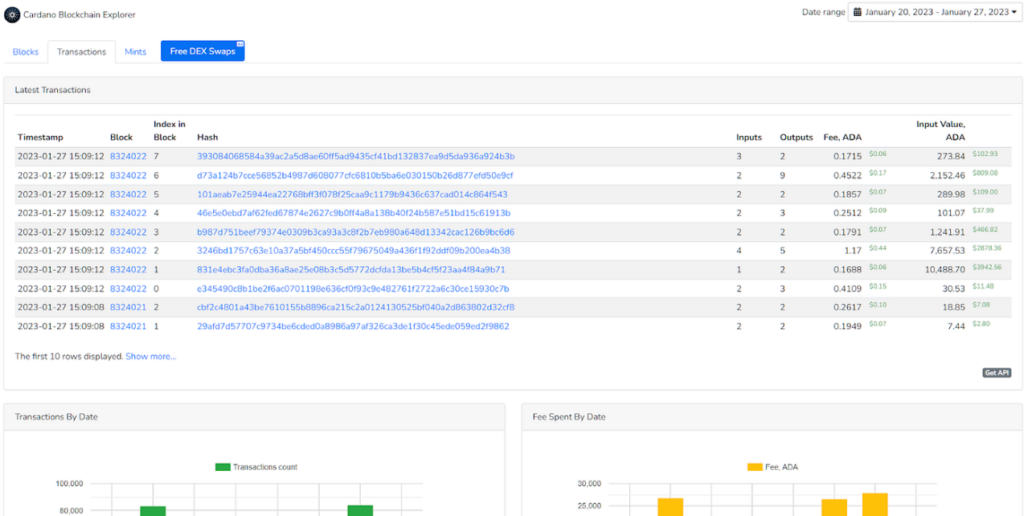10 Best Blockchain Tools Shortlist
Here's my pick of the 10 best software from the 25 tools reviewed.
Our one-on-one guidance will help you find the perfect fit.
Navigating the blockchain industry, I've discovered a plethora of blockchain development tools designed for various operating systems, including Windows, Mac, and iOS. These tools, tailored for creating robust blockchain applications, often leverage the power of the Ethereum Virtual Machine. From managing auctions and supply chain processes to accessing block history and deploying machine learning solutions, these tools come equipped with an interactive console to test networks and track blockchain apps.
Whether you're working with Microsoft's suite or diving into the nuances of blockchain apps, the right tool can alleviate the challenges of integrating blockchain into diverse sectors, making the development journey smoother and more intuitive.
What Is A Blockchain Tool?
Blockchain tools are specialized software applications and platforms designed to assist in creating, managing, and deploying blockchain-based solutions. These tools cater to a diverse audience, including developers, entrepreneurs, and businesses, helping them develop decentralized applications (dApps), manage digital assets, or run blockchain nodes.
Their primary function is facilitating the tasks associated with blockchain technology, such as writing smart contracts, testing decentralized systems, or ensuring secure and efficient transactions on blockchain networks. Businesses seeking blockchain technology often benefit from partnering with specialized blockchain consulting services. These businesses offer expert guidance, tailored solutions, and strategic insights to ensure successful implementation and optimization.
Best Blockchain Tools Summary
| Tool | Best For | Trial Info | Price | ||
|---|---|---|---|---|---|
| 1 | Best for reliable Ethereum infrastructure | Not available | Pricing upon request | Website | |
| 2 | Best for running Ethereum nodes | Not available | Pricing upon request | Website | |
| 3 | Best for enterprise blockchain solutions | Not available | Pricing upon request | Website | |
| 4 | Best for Ethereum smart contract development | Not available | From $70/user/month (billed annually) | Website | |
| 5 | Best for Ethereum wallet and token management | Not available | Pricing upon request | Website | |
| 6 | Best for NFT development and management | Not available | Pricing upon request | Website | |
| 7 | Best for writing Ethereum smart contracts | Not available | Open-source | Website | |
| 8 | Best for smart contract platforms | Not available | Gas fees for transactions and contract executions | Website | |
| 9 | Best for dApp development and testing | Free demo available | Pricing upon request | Website | |
| 10 | Best for sustainable blockchain solutions | Not available | Pricing upon request | Website |
-

Docker
Visit WebsiteThis is an aggregated rating for this tool including ratings from Crozdesk users and ratings from other sites.4.6 -

Pulumi
Visit WebsiteThis is an aggregated rating for this tool including ratings from Crozdesk users and ratings from other sites.4.8 -

GitHub Actions
Visit Website
Best Blockchain Tools Reviews
Alchemy Supernode stands at the forefront of Ethereum infrastructure, providing developers with robust and scalable solutions. Its unmatched reliability ensures developers can focus on their core projects without worrying about infrastructure issues, aligning it perfectly with the title of 'best for reliable Ethereum infrastructure.'
Why I Picked Alchemy Supernode: In the vast arena of Ethereum infrastructure tools, Alchemy Supernode emerged as a standout. I picked it because, after comparing various tools and judging their efficacy, Alchemy Supernode presented a unique blend of reliability and performance.
Given the critical importance of infrastructure in the blockchain domain, I determined Alchemy Supernode is undoubtedly best for those seeking reliability in their Ethereum projects.
Standout Features & Integrations:
Alchemy Supernode boasts an array of indispensable features like improved data availability, real-time notifications, and high-speed request processing. Beyond its features, Alchemy Supernode offers critical integrations, enabling developers to integrate with popular wallets, DApps, and other Ethereum-based tools, fostering a cohesive development environment.
Pros and cons
Pros:
- Compatible with various Ethereum-based applications and tools
- Real-time notifications ensure timely updates and alerts
- Advanced data retrieval offers developers more flexibility
Cons:
- Might be overkill for smaller projects or those just starting with Ethereum
- Custom integrations could require additional setup
- Might be a learning curve for those new to Ethereum infrastructure
Geth, an abbreviation for 'Go Ethereum', stands as a command-line interface for running an Ethereum node, using the Go programming language. With the rapid rise of Ethereum as a dominant blockchain platform, Geth simplifies the process of engaging with the Ethereum network, making it the preferred choice for those looking to run nodes efficiently.
Why I Picked Geth: Navigating the landscape of tools to run Ethereum nodes, Geth consistently captured my attention. After careful consideration, weighing options, and judging based on its merits, Geth seemed to have an edge. Its distinction lies in its streamlined operation, and I chose it as I determined it to be particularly adept for running Ethereum nodes.
Standout Features & Integrations:
Geth offers a comprehensive suite of functionalities: from mining for developers who want to engage in Ethereum's Proof of Work consensus to enabling fast syncing of the Ethereum blockchain. Furthermore, its integration capabilities shine through as Geth can easily interact with other Ethereum tools, fostering an interconnected ecosystem.
Pros and cons
Pros:
- Strong integration with other Ethereum ecosystem tools
- Efficient syncing ensures quicker node operation
- Comprehensive features cater to both beginners and experienced developers
Cons:
- Updates and patches might require occasional reconfigurations
- Resource-intensive during full node operations
- Might be challenging for users unfamiliar with command-line tools
Hyperledger Fabric is a modular and customizable blockchain framework intended to support the development of enterprise-grade applications. With a primary focus on the needs of businesses, it's clear how Hyperledger Fabric positions itself as the top choice for enterprise blockchain solutions.
Why I Picked Hyperledger Fabric: When selecting a tool for enterprise blockchain needs, my judgment veered towards Hyperledger Fabric. Comparing it with other platforms, I formed the opinion that its modular architecture and focus on privacy make it distinct in the blockchain sphere.
I chose Hyperledger Fabric as the 'best for enterprise blockchain solutions' because of its ability to cater to the specific requirements of businesses, ensuring scalability and confidentiality.
Standout Features & Integrations:
Hyperledger Fabric stands out with its permission nature, allowing enterprises to have control over who can access the network. It also offers chaincode functionality, enabling businesses to write smart contracts in standard programming languages.
As for integrations, Hyperledger Fabric is designed to work well with existing enterprise systems, and it is compatible with various databases like CouchDB for ledger storage.
Pros and cons
Pros:
- Modular design allows for improved customization
- Supports smart contracts in multiple languages
- Tailored for enterprise use with permission access control
Cons:
- Not as decentralized as public blockchains
- Requires a good understanding of its architecture for effective use
- Might be overkill for smaller projects or startups
Truffle is a renowned development framework that specializes in Ethereum smart contracts. It's tailored to make the life of a developer more straightforward, providing the tools required to deploy and manage smart contracts on the Ethereum network. Given its capabilities, it is evident why it's best suited for Ethereum smart contract development.
Why I Picked Truffle: My journey to identify top-notch tools for Ethereum smart contract development inevitably led me to Truffle. I selected Truffle after a rigorous comparison with other tools, judging each based on performance, ease of use, and unique features. Given its reputation and capabilities, I determined that Truffle deserved the distinction of 'best for Ethereum smart contract development.'
Standout Features & Integrations:
Truffle boasts an integrated smart contract compilation and linking, alongside a binary management capability, making it a robust tool for developers. Its built-in smart contract testing suite written in JavaScript ensures the viability of contracts before they are deployed. As for integrations, Truffle works with popular Ethereum wallets and other tools within the Truffle Suite, ensuring a holistic development experience.
Pros and cons
Pros:
- Supports migrations for network management
- Built-in testing suite provides added assurance
- Comprehensive development framework tailored for Ethereum
Cons:
- Relies heavily on other tools within the Truffle Suite, which might require additional learning
- Some features may be overkill for simple smart contract projects
- Can be overwhelming for beginners due to its feature-rich nature
MetaMask functions as both a browser extension and mobile application, serving as an Ethereum wallet that facilitates interactions with the Ethereum blockchain. Its utility extends to token management, allowing users to store, send, and manage their Ethereum tokens.
Given its integration capabilities and user-friendly interface, it naturally stands out as the best choice for Ethereum wallet and token management.
Why I Picked MetaMask: During my deep dive into crypto wallet solutions, MetaMask continually rose to the top. The selection process included comparing features, security measures, and user reviews, which made it clear that MetaMask had an edge. Judging from its widespread adoption and reputation, I determined that MetaMask is undoubtedly best for Ethereum wallet and token management.
Standout Features & Integrations:
MetaMask boasts features like a secure identity vault, allowing users to manage multiple identities across various networks. It also supports Ethereum-based tokens and offers a built-in token swap feature, which users find highly practical. In terms of integrations, MetaMask connects with various Ethereum-based DApps and platforms, positioning itself as a gateway to the decentralized web.
Pros and cons
Pros:
- Prioritizes user security with private key access
- Acts as an interface for numerous decentralized applications
- Supports multiple Ethereum tokens and networks
Cons:
- Occasional transaction fee estimations might seem higher than alternative wallets
- For newcomers, the interface can be a tad overwhelming initially
- Mainly Ethereum-centric; limited support for other blockchains
Alchemy NFT API serves as a beacon for developers in the vast sea of NFT creation and management tools. As the non-fungible token (NFT) wave continues to crest, this tool provides a comprehensive solution, making it genuinely optimal for NFT development and management.
Why I Picked Alchemy NFT API: When determining which tool to select for this niche, I was impressed by Alchemy NFT API's robust features and streamlined approach. It's not just about my opinion; when comparing its capabilities with other platforms, Alchemy NFT API consistently emerged as the front-runner.
Given the growing complexity in the NFT space, having a tool that specializes in NFT development and management is crucial, and that's why Alchemy is best for this role.
Standout Features & Integrations:
The Alchemy NFT API stands out with its real-time notifications on NFT transfers, ensuring developers are always in the loop. Additionally, it offers a highly granular search mechanism that makes it simple to locate specific NFTs within a collection.
Integration-wise, Alchemy NFT API dovetails with many popular blockchain platforms, enhancing its utility for developers entrenched in various ecosystems.
Pros and cons
Pros:
- Broad integration scope with popular blockchain platforms
- Granular search capabilities simplify locating specific NFTs
- Real-time notifications keep developers updated on NFT transfers
Cons:
- Some advanced features might be locked behind higher pricing tiers
- Requires a learning curve for those new to NFT development
- Might be overkill for hobbyist developers or small-scale projects
Solidity is a high-level programming language specifically crafted for implementing smart contracts on the Ethereum platform. Given its integral role in Ethereum-based applications, it's evident that Solidity is unparalleled when it comes to writing Ethereum smart contracts.
Why I Picked Solidity: In the process of determining the most apt tool for Ethereum smart contracts, my comparison led me to select Solidity. I judged its specific design for Ethereum and the robust features it offers, positioning it in a distinct category. I chose Solidity because it is tailored to fit the Ethereum ecosystem, ensuring that developers have the precise tools they need for smart contract creation.
Standout Features & Integrations:
Solidity boasts features like static typing, inheritance, and complex user-defined types among others. It also supports libraries and allows for the creation of complex decentralized applications. For integrations, Solidity is integral to the Ethereum ecosystem, working with tools like Truffle, Remix, and various Ethereum wallets.
Pros and cons
Pros:
- Broad community support and regular updates
- Robust features to support complex smart contract development
- Designed specifically for the Ethereum platform
Cons:
- Evolving nature means developers need to keep up with changes and updates
- Errors in code can lead to significant security vulnerabilities
- Has a learning curve for those new to blockchain development
Ethereum is a decentralized platform that allows developers to write and deploy smart contracts. These contracts automatically enforce their terms, running on Ethereum's global, peer-to-peer network. Given this innovative approach, it's evident why Ethereum has become synonymous with smart contract platforms.
Why I Picked Ethereum: In the vast landscape of blockchain platforms, my process of selecting led me to Ethereum as the top contender. Having opinions and comparisons with other platforms, it was evident that Ethereum's flexibility and community support make it different and arguably superior. I've determined Ethereum as the 'best for smart contract platforms' based on its pioneering role and widespread adoption in the blockchain space.
Standout Features & Integrations:
Ethereum's primary feature is its ability to execute Turing-complete smart contracts, enabling intricate, programmable transactions. It's also powered by its native cryptocurrency, Ether, which is used to incentivize network validators and pay for computational services.
In terms of integrations, Ethereum's vast ecosystem supports countless decentralized applications (dApps) and interfaces with numerous wallets and development tools.
Pros and cons
Pros:
- High degree of security and decentralization
- Large and active development community
- A robust platform supporting complex smart contracts
Cons:
- Steeper learning curve for developers new to the platform
- Scalability issues, although solutions are in development
- Gas fees can be unpredictable and high during network congestion
Embark carves out a niche for itself as a comprehensive tool tailored for decentralized application (dApp) development and testing. Recognizing the complexities of dApp projects, this platform emerges as a go-to solution, fitting the bill perfectly for dApp development and testing.
Why I Picked Embark: In the sea of tools available, choosing Embark was not a hasty decision. Upon close examination and comparison with similar platforms, Embark's tailored approach towards dApp development became evident. It’s not merely about judging, but in my comprehensive opinion, and after considering the nuances of dApp projects, I determined Embark to be best equipped for the task.
Standout Features & Integrations:
Embark is armed with an advanced integrated development environment (IDE) that fosters swift dApp development. Moreover, its testing suite ensures rigorous assessments, guaranteeing dApps are market-ready.
In terms of integrations, Embark smoothly integrates with popular smart contract languages and other blockchain-focused platforms, bridging the gap between diverse decentralized ecosystems.
Pros and cons
Pros:
- Versatile integrations with popular blockchain platforms
- Rigorous testing suite ensures dApps are robust and ready for deployment
- Advanced IDE expedites dApp development processes
Cons:
- Documentation might not cover all use-case scenarios
- Advanced features could be overwhelming for simple projects
- Beginners might face a steep learning curve
Cardano stands as a third-generation public blockchain and cryptocurrency project, renowned for its research-driven approach. This decentralized platform lays the foundation for smart contracts, emphasizing sustainability and security, aligning with its distinction for sustainable blockchain solutions.
Why I Picked Cardano: I chose Cardano after meticulously comparing various blockchain platforms, and it stood out due to its commitment to peer-reviewed research and academic partnerships. This foundation ensures its platform is robust, forward-thinking, and genuinely sustainable.
In a landscape where sustainability in technology is becoming increasingly vital, Cardano truly shines as the best for sustainable blockchain solutions.
Standout Features & Integrations:
Cardano's Ouroboros proof-of-stake algorithm not only elevates its security but also reduces the environmental impact typically associated with proof-of-work systems. The platform's layered architecture separates settlement from computation, facilitating flexibility and easier upgrades.
On the integration front, Cardano has partnerships with enterprise-level entities and governments, allowing it to integrate real-world applications and policies directly onto its blockchain.
Pros and cons
Pros:
- Layered architecture offers flexibility and scalability
- Ouroboros’ proof-of-stake algorithm promotes energy efficiency
- Research-driven and peer-reviewed approach ensures a solid foundation
Cons:
- Smart contract languages can have a steeper learning curve for some developers
- Lower adoption rate compared to some other major blockchains
- Still in development, with some features yet to be released
Other Noteworthy Blockchain Tools
Below is a list of additional blockchain tools that I shortlisted but did not make it to the top 10. They are definitely worth checking out.
- Ganache
For personal blockchain for Ethereum testing
- Chainlink
For decentralized Oracle networks
- Tezos
Good for formalizing blockchain protocol upgrades
- Binance Smart Chain (BSC)
Good for fast, low-cost dApp transactions
- Remix Project
Good for in-browser Ethereum smart contract writing
- Waves
Good for customizable token creation and management
- EOSIO
Good for decentralized application hosting
- SDK
Good for streamlined decentralized app development
- Algorand
Good for scalable and secure blockchain infrastructure
- Qtum
Good for merging Bitcoin and Ethereum functionality
- Corda
Good for private, permissioned blockchain solutions
- Solc
Good for Solidity code compilation
- Neo
Good for digital asset automation on its blockchain
- Stellar
Good for quick cross-border transactions
- Web3.js
Good for Ethereum-based application integration
Other Open-Source Platform Reviews
Selection Criteria For Choosing The Best Blockchain Tools
When evaluating software for blockchain and decentralized applications, it's vital to look beyond the surface and truly understand what each tool offers in terms of functionality, features, and usability. In my journey, I've evaluated dozens of such tools. My primary focus was on how these tools cater to developers and teams aiming to build next-gen decentralized applications and systems.
Through rigorous testing and research, I have curated a list of criteria that matter most for this type of software:
Core Functionality
- Smart Contract Deployment: The tool should facilitate the creation, testing, and deployment of smart contracts efficiently.
- Decentralized Application Integration: It should have capabilities to integrate with various dApps and platforms.
- Transaction Management: Handle transactions, both in terms of sending and receiving, including tracking and validation.
- Interoperability: Ability to communicate or interact with other blockchains or platforms.
Key Features
- Security Protocols: The tool must prioritize security, offering features such as encryption and multi-signature validation.
- Consensus Mechanisms: It should support or be compatible with various consensus mechanisms like Proof of Work, Proof of Stake, etc.
- Development Libraries: Provide libraries or SDKs that simplify the development process.
- Scalability Solutions: Features that allow the blockchain or dApp to handle an increased load or number of transactions.
Usability
- Intuitive Interface: For tools focused on smart contract deployment or dApp development, an interface that highlights code syntax, provides code suggestions, or has debugging features is crucial.
- Modular Design: Given the complexity of blockchain projects, tools should offer a modular design, enabling developers to use components as per the project's needs.
- Role-based Access: Essential for teams, it ensures that members have appropriate permissions based on their roles, ensuring both security and efficiency.
- Comprehensive Documentation: With the complex nature of blockchain technology, it's imperative for the tool to have detailed guides, tutorials, and a support system to assist users in their development journey.
Most Common Questions Regarding Blockchain Tools
What are the primary benefits of using blockchain tools?
The adoption of blockchain tools can change various aspects of your operations and development processes. Here are five key benefits:
- Improved Security: Blockchain software inherently offers advanced cryptographic techniques, ensuring data integrity and security.
- Increased Transparency: With a shared, immutable ledger, all participants have access to the same data, fostering trust and transparency.
- Efficient Transactions: Transactions become faster and more efficient as they can occur in real time or within a few hours, eliminating the need for intermediaries.
- Cost Reduction: With reduced need for third parties and intermediaries, costs associated with data verification, contract execution, and transactions decrease.
- Streamlined Development: With specific tools for smart contract creation, testing, and deployment, the development process becomes more efficient and error-free.
How much do blockchain tools typically cost?
Blockchain tool pricing can vary based on the functionality offered, the target audience, and the platform’s maturity. While some tools provide free access or open-source models, others might have monthly or annual subscription fees.
What are the common pricing models for blockchain tools?
The prevalent pricing models for blockchain tools include:
- Subscription-based: Monthly or annual fees for access to the tool and its features.
- Freemium: Basic access is free, with premium features available for a fee.
- One-time Purchase: Pay a single upfront fee for lifetime access.
- Open-source: The tool is freely accessible and customizable, but might offer paid versions or support for advanced features.
What's the typical range of pricing for these tools?
Pricing can range from free open-source tools to hundreds or even thousands of dollars for enterprise-level platforms. It largely depends on the complexity and features offered by the tool.
Which are the cheapest and most expensive software options?
The cheapest options are usually open-source tools like Ethereum’s Solc and Remix Project. On the other hand, enterprise-grade solutions like Corda or Hyperledger Fabric might come at a higher cost, depending on the specific licensing and support agreements.
Are there any free blockchain tool options available?
Yes, several blockchain tools are available for free. For example:
- Ethereum’s Solc and Remix Project are open-source and free to use.
- Stellar and EOSIO offer specific developer tools and libraries for free.
- Many platforms provide free tiers or community versions with limited functionality to help developers get started.
Summary
Choosing the right blockchain tool can significantly impact the efficiency, security, and transparency of your blockchain projects. From the essential core functionalities to the user experience, the best tools are designed to streamline your development and operational processes.
Furthermore, with a variety of pricing models available, there's a solution to fit every budget, from free open-source platforms to comprehensive enterprise solutions.
Key Takeaways
- Determine core needs: Before making a choice, clearly identify the core functionalities you need. Whether it's smart contract development, transaction efficiency, or improved security, choosing a tool that aligns with your primary objectives is crucial.
- Evaluate usability and support: A tool with an intuitive interface and robust customer support can significantly improve your team's productivity. Especially for complex solutions, access to training resources or a learning library can make the onboarding process smoother.
- Understand pricing models: While cost shouldn't be the sole deciding factor, understanding the different pricing models – from freemium to subscription-based – ensures you get value for money and select a tool that aligns with your budget constraints.
What Do You Think?
I hope this guide has provided valuable insights to help you choose the best blockchain tool for your needs. If you think I've missed a tool that deserves to be on this list, I invite you to share your recommendations. Your input can help make this resource even more comprehensive and useful for everyone.






